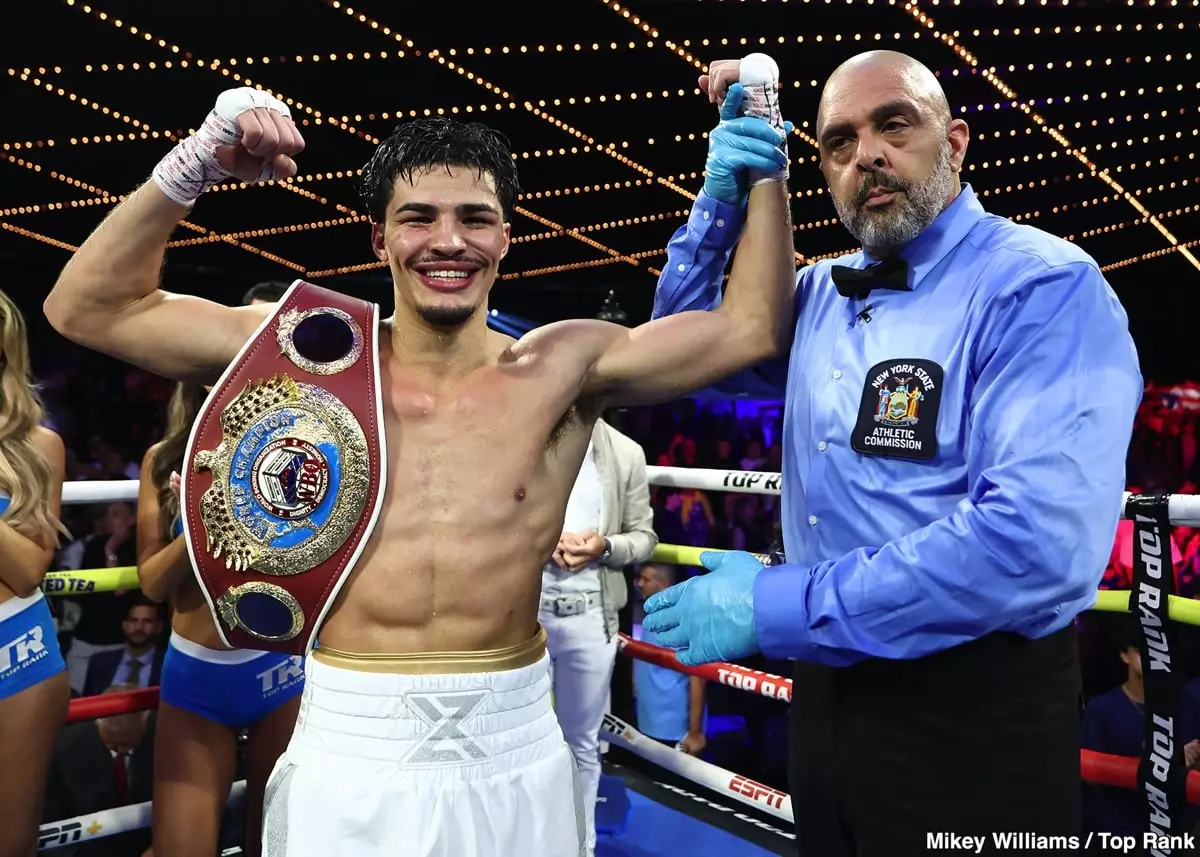In the highly competitive world of boxing, chasing recognition and titles often involves as much strategic positioning as raw talent. Xander Zayas, at just 22 years old, exemplifies how a meticulously crafted career can lead to a world championship, even if the opponent faced for the belt might not be the most seasoned contender. His recent victory to claim the WBO junior middleweight title was widely seen as a product of excellent management and promotional foresight, rather than a testament to overcoming elite opposition. Meanwhile, Vergil Ortiz Jr.’s dismissive comment—labeling Zayas as “food”—exposes a common psychological tactic in boxing: underestimating an opponent simply because they haven’t yet proven their worth against seasoned rivals.
What’s notable is that Ortiz, despite his nine years as a professional, has yet to fight for a genuine world title—a fact that raises questions about his own career trajectory. In stark contrast, Zayas has been guided into the fight that ultimately legitimized his claim to the belt. This wasn’t happenstance; it was the product of shrewd managerial decisions, leveraging the sanctioning bodies’ politics and strategic matchmaking. The clear message is that in boxing, timing and promotion are often as crucial as talent itself. Fighters like Zayas are carefully positioned to maximize their chances of victory, reinforcing the idea that the path to greatness is often paved with opportunity—not solely skill.
The Discrepancy Between Opportunity and Achievement
Despite Zayas’ young age and rising profile, critics might argue that his title is a middle step rather than a pinnacle of achievement. Part of this critique stems from the fact that his recent belt was acquired against Jorge Garcia, a challenger seen by some as unworthy of the title shot. The promotional dance—placing fighters in the “right” position regarding rankings and sanctioning bodies—is a behind-the-scenes chess game that determines who gets to hold a belt and when.
Ortiz’s comments reflect an undercurrent of frustration and perhaps jealousy—both personal and professional. His assertion that Zayas is “food” is less about the actual fighter and more about how Ortiz perceives himself in the pecking order. If we assess their careers objectively, Ortiz has not yet demonstrated the ability to dominate or consistent excellence at the world title level. This contrast suggests that, ultimately, championships in boxing are as much about timing and politics as they are about boxing skills. The real winners are often those who can navigate the complex landscape of rankings, negotiations, and promotional influences.
Strategic Promotions—The Hidden Hand Behind the Spotlight
The discourse surrounding Ortiz and Zayas uncovers a larger truth: boxing is a game of strategic promotion. Promoters like Top Rank excel at orchestrating fighters’ careers, aligning them with suitable opponents to climb the rankings and secure title shots at precisely the right moments. Ortiz, despite his talent, seems to have fallen short in this regard—perhaps due to less effective management or misjudged opportunities.
In this context, Zayas’ recent title isn’t solely a reflection of his burgeoning talent; it’s a carefully positioned victory that might have looked effortless on paper but was the result of calculated career planning. This isn’t necessarily a criticism—it speaks to the pragmatic side of boxing that fans often ignore. Success often hinges on being in the right place at the right time, with strategic management acting as the unseen puppet master. Ortiz’s dismissiveness could be rooted in frustration over lost opportunities or dissatisfaction with how his career’s trajectory has unfolded, especially when others are being propelled ahead by better-crafted pathways.
Ultimately, the sport’s true power lies in those who understand and manipulate its complex ecosystem. While fighters’ skill remains essential, it’s the unseen chess game of promotion, matchmaking, and sanctioning that determines who becomes boxing’s next star. And in this game, timing, strategy, and political skill often trump raw talent.

